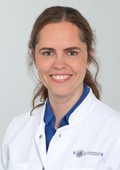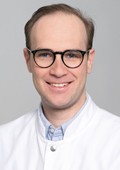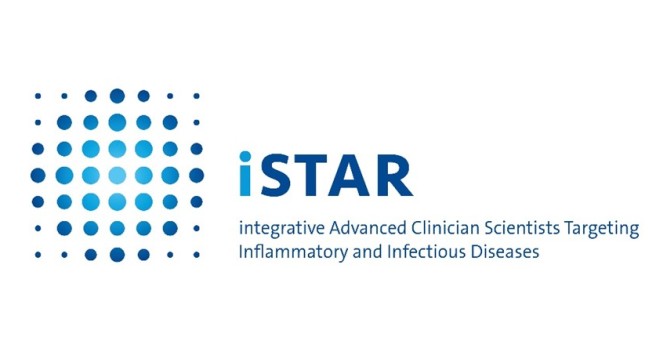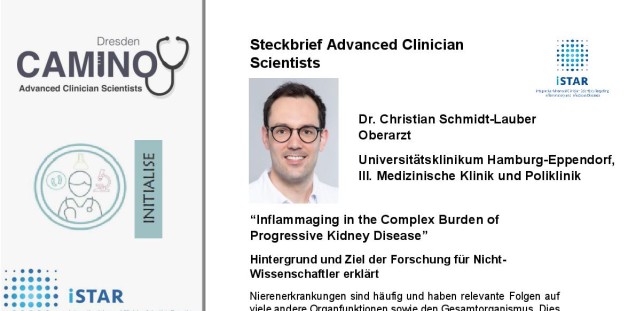Advanced Clinician Scientists
-
1. ACS: Dr. Johann von Felden
Liquid Biopsy in Hepatocellular Carcinoma
Research profile: von Felden Lab .
Objective:
Despite the revolution of personalized cancer care and immunotherapy in many other cancer entities, liver cancer has fallen behind regarding biomarker research and personalized medicine. Based on our previous work, our translational research group aims at delineating actionable mechanisms of liver cancer initiation and progression and at establishing molecular risk stratification algorithms. We have the ambitious goal to implement personalized cancer care in this devastating disease, including primary prevention strategies, early cancer detection, improving treatment allocation, and solving therapeutic resistance. We are working both on clinical and translational projects, including wet and dry bench work, and in close collaboration with local and international partners.
Methods / data sets:
- Large clinical database (~1,000 patients)
- Large biobank of tissue and blood specimens
- Liquid Biopsy technologies:
- Circulating tumor DNA
- Extracellular vesicles
- Circulating tumor cells
- Next-generation sequencing
- RNAseq (bulk, small RNA)
- DNA mutation / methylation profiling ·
- Tissue Microarray
- Metabolomics (tissue and blood)
- Proteomics
- Liver Cancer Models
- State-of-the-art molecular biology techniques
- Clinical trials (all phases)
Publications by J. von Felden. Please follow the link .
 Priv.-Doz. Dr. med.Johann von FeldenMD
Priv.-Doz. Dr. med.Johann von FeldenMD- Senior physician
- Medical Specialist in Internal Medicine
- Clinician Scientist
Location
Main Building O10 , 2nd Floor, Room number 02.2.049.1 -
2. ACS: Dr. Tilo Freiwald
The complement system in inflammatory renal disease: Dissecting intracellular C3 signaling
Gesamtziel des Vorhabens
Lupusnephritis (LN) ist eine häufige Komplikation des systemischen Lupus erythematodes, die weiterhin eine hohe Morbidität und Mortalität aufweist, mit bis zu 20% der Patienten, die innerhalb von 15 Jahren ein terminales Nierenversagen erleiden. Hier besteht ein ungedeckter Bedarf fuer neue spezifische Behandlungen mit geringer Toxizität. Aktuell wird die Entwicklung neuer Medikamente unter anderem durch ein unvollständiges Verständnis der Pathophysiologie der Erkrankung behindert. Die gängigen Klassifikationssysteme bauen größtenteils auf der Einteilung und Bewertung von glomerulären Läsionen auf. Unberücksichtigt bleibt dabei die häufig auftretende Entzündung des tubulointerstitiellen Kompartiments, die zudem mit schlechteren Langzeitergebnissen verbunden ist. Zudem wird bei LN häufig eine tubuläre Ablagerung von Faktoren des Komplementsystems festgestellt, aber ihr Ursprung und ihre Funktion sind noch unvollständig verstanden. Ursprünglich wurde angenommen, dass die Komplementfaktoren ausschließlich aus der Leber stammen, heute ist jedoch bekannt, dass die meisten Zellen des Körpers selbst Komplementfaktoren produzieren können und dass Komplement nach der Sekretion sowohl außerhalb der Zellen als auch innerhalb der Zellen Funktionen ausübt. Tatsächlich produzieren renale tubuläre Epithelzellen (RTEC) als Reaktion auf Entzündungssignale Komplementfaktoren. Dies stellt eine Komplementquelle am Ort der Schädigung bei Lupusnephritis dar, dessen Funktion jedoch weitgehend ungeklärt sind. In diesem Vorhaben möchten wir die Rolle des Komplements C3 bei Patienten mit Lupusnephritis aufzuklären, um Informationen über neuartige Behandlungen zu erhalten. Im Detail schlagen wir vor den zellulären Ursprung von C3 in einem Mausmodell der Lupusnephritis zu bestimmen, dann die lokale und intrazelluläre Funktion von C3 zu untersuchen, und einen räumliche Transkriptom-Atlas der wichtigsten Komplementfaktoren bei Patienten mit Lupusnephritis zu erstellen.
/bilder/personen/tilo_freiwald_kontaktbild.png) Dr. med.Tilo FreiwaldMD
Dr. med.Tilo FreiwaldMD- BMBF iSTAR Advanced Clinician Scientist
- Medical Specialist in Internal Medicine
- Emergency Medicine
Location
Campus Forschung I - N27 , 3rd Floor, Room number R03.015 -
3. ACS: Dr. Julia Pagel
 Dr. med.Julia Pagel
Dr. med.Julia Pagel- Medical specialist
- Medical Specialist in Pediatrics and Youth Medicine
Location
O47 -
5. ACS: Dr. Johannes Hartl
Common and distinct pathogenic mechanism in autoimmune hepatitis and lupus related to anti-DNA antibodies
Conceptually, our group aims to gain novel insights in the pathogenesis of autoimmune liver diseases by deciphering the mechanisms that lead to the accumulation of disease specific autoantibodies. As antibody-production results from the crosstalk between cognate B and CD4 T cells, we aim to identify, characterize, and track the respective autoreactive T cell populations.
Apart from the origin of well-established antibodies such as SLA/LP in autoimmune hepatitis (AIH) and AMA in primary biliary cholangitis (PBC,) we are particularly interested in the role of anti-dsDNA antibodies in AIH. Despite current textbooks attribute these antibodies exclusively to lupus, AIH is the only other autoimmune disorder which shares this reactivity to dsDNA. While the pathogenic role of anti-DNA Abs in SLE is well-established and has been studied extensively, their role in in AIH has never been explored in depth.
As our group has a strong translational approach, our projects always have the ambition to directly impact and improve current clinical practice. To this end, we expect that our studies identify novel diagnostic markers, novel surrogate markers of disease activity as well as novel therapeutic targets, thereby addressing some of the most urgent needs in the care of people with autoimmune liver diseases. To purse such ambitious goals, we can draw on one of the largest cohorts for autoimmune liver diseases, treated at the YAEL center for autoimmune liver diseases.
PD Dr. med.Johannes HartlMD- Physician
- Medical Specialist in Internal Medicine
Location
Main Building O10 , 2nd Floor -
6. ACS: Dr. Fabian Braun
Laboratory for renal intercellular communication via extracellular vesicles
Hintergrund und Ziel der Forschung für Wissenschaftler erklärt:
Extracellular vesicles (EVs) have been identified to be critical contributors to cancer cell biology, immune mediation and metabolic signalling. EVs are small membrane bound packages that contain specific proteins, nucleic acids and lipid cargo, facilitating intercellular signalling across great distances. Because of this, the use of EVs as a source for biomarkers has drawn significant attention. Yet, in nephrology, we currently lack 1) a concise understanding of cell-specific vesicle release and content, 2) how renal cells communicate through vesicles and 3) what effect different diseases exert on these parameters. Our group aims to characterize the release and cargo of small and medium-sized extracellular vesicles of podocytes and proximal tubular cells to identify alterations upon cellular damage in glomerular diseases and acute kidney injury.
/bilder/personen/braun_fabian-20230412_0004_3_kontaktbild.jpg) Dr. med.Fabian Braun
Dr. med.Fabian Braun- Senior physician
- Geschäftsführender Oberarzt Personalorganisation
- Medical Specialist in Internal Medicine
- Medical Specialist in Internal Medicine and Nephrology
Location
Main Building O10 , 2nd Floor -
7. ACS: Dr. Malte Mohme
Untersuchung der viralen Kreuzreaktivität der gemeinsamen T-Zell-Aktivierung und Erforschung der anti-inflammatorischen epigenetischen Immunmodulation in Gliom-spezifischen T-Zell-Antworten
 Priv.-Doz. Dr. med.Malte MohmeFEBNS
Priv.-Doz. Dr. med.Malte MohmeFEBNS- Senior physician
- Head of working group
- Medical Specialist in Neurosurgery
- Prüfarzt (Arzneimittelgesetz)
- Zertifikat „Spezielle Neurochirurgische Onkologie“ (NCA)
- AG Head of "CNS Tumor Immunology"
Location
Main Building O10 , 2nd Floor -
8. ACS: Dr. Christian Schmidt-Lauber
Inflammaging in the Complex Burden of Progressive Kidney Disease
/bilder/personen/schmidt-lauber_kontaktbild.jpg) Priv.-Doz. Dr. med.Christian Schmidt-Lauber
Priv.-Doz. Dr. med.Christian Schmidt-Lauber- Managing senior physician
- Medical Specialist in Internal Medicine and Nephrology
- Medical Specialist in Internal Medicine
- Emergency Medicine
Location
Main Building O10 , 2nd Floor -
Associated member: Dr. Dr. Angelique HölzemerDr. med.Angelique HölzemerPhD
- Head of research group
- Medical specialist
Location
Main Building O10 , 2nd Floor -
Associated member: Dr. Nicola Tomas
Laboratory for antigen-specific disease targeting
/bilder/personen/tomas_nicola-_20240521_01_3_kontaktbild.jpg) Priv.-Doz. Dr. med.Nicola Martin Tomas
Priv.-Doz. Dr. med.Nicola Martin Tomas- Senior physician
- Geschäftsführender Oberarzt Struktur und Innovationsplanung
- Medical Specialist in Internal Medicine and Nephrology
Location
Campus Forschung I - N27 , 3rd Floor, Room number 03.021






